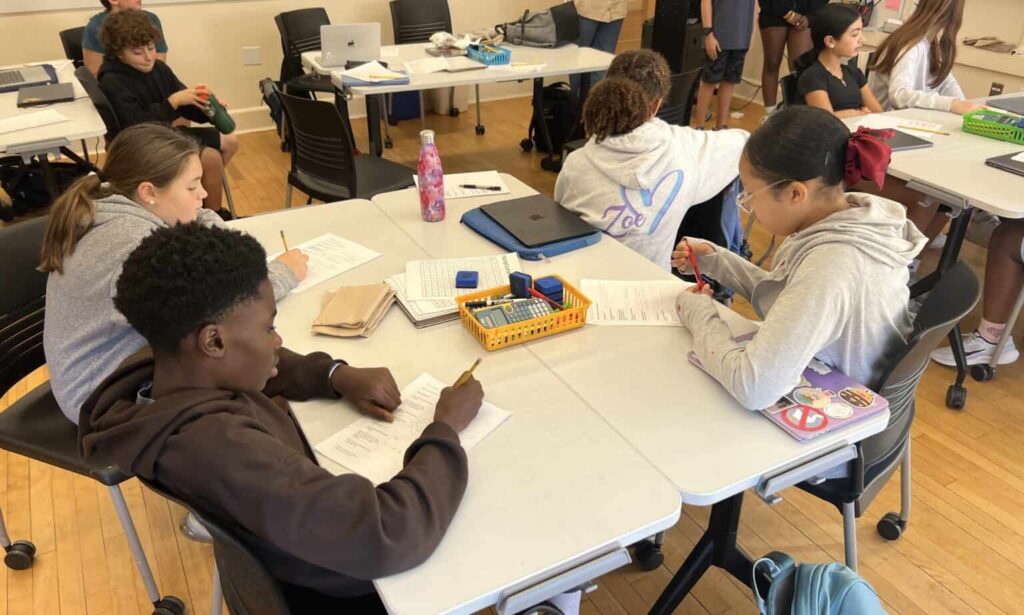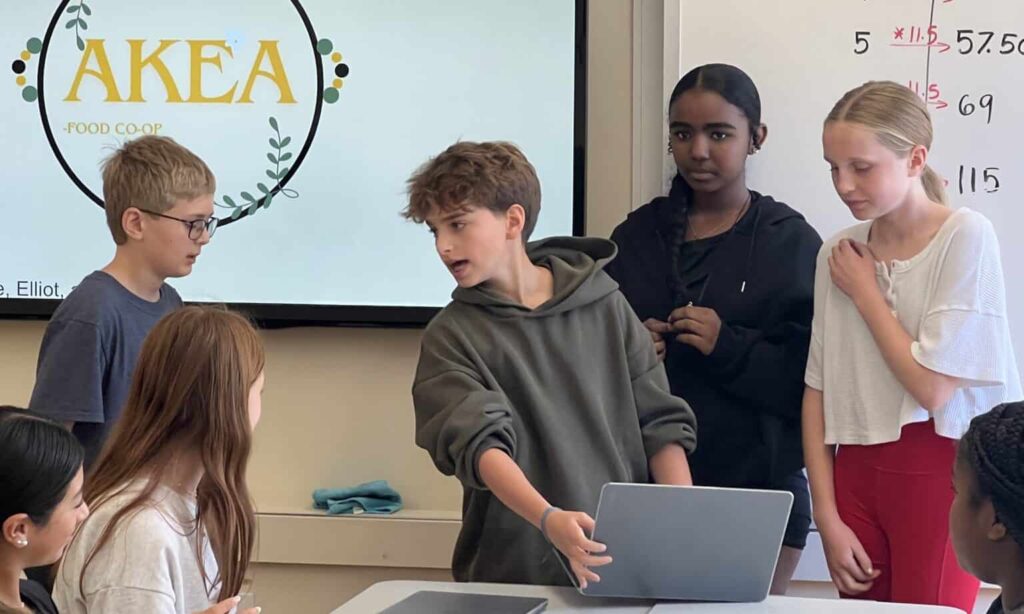
Class: Math 7 – Things Change: Linear Rates and Proportionality
Grade: 7
Teacher: Melissa Bell
Students in Math 7 designed proposals for on-campus snack co-ops with the goal of reimagining snacking to be more sustainable and community-centered. Using math skills such as data collection and modeling proportional relationships, each group created detailed business plans that included expenses, survey data, and two proposed snacks to sell. Students finished the assignment by pitching their co-ops to a panel of judges Shark Tank style.
The class began the assignment by considering the following essential question: how can we develop a food co-op that empowers local community farmers and distributors? To expand upon this, two guest speakers–Dorchester Food Co-op Board Member Jenny Silverman and Charles River Food Co-op Board Member Rachel Meyers–came to speak to the class about the value of food co-ops and how they operate. By providing this look into the function of food co-ops in local communities, students were able to imagine what a snack co-op could potentially look like on Beaver’s campus.

Students used the co-op assignment as a lens to view what they were learning in class. By exploring how to represent proportional relationships with tables, graphs, and equations, students were able to calculate costs for their snacks. After a unit on sampling, students were empowered to conduct surveys to determine what snacks would best meet the needs of fellow students. With each new concept, students grew more comfortable using math to solve real-world problems.
We took a survey and found that most students want their snacks to be sweet and sugary, but 50% said they wanted their snacks to be healthy.
Math 7 student

The project also gave students an opportunity to work on their presentation skills. Prior to the pitches, Director of the R+D Center Blake St. Louis visited the class to prep students on how to communicate their business plans in the most effective, impactful way. Students also watched an episode of Shark Tank to get a better idea of what to expect.
Pitching in front of a panel encourages students to convey their ideas clearly and concisely, showing a deeper understanding of the math content. This format also pushes them to be engaging and persuasive, which improves public speaking and presentation skills.
Melissa Bell, Middle School Math Teacher
During the presentations, students passed out samples of their proposed snacks including homemade strawberry popsicles and bagel bites. Each group walked their audience through the what, why, and how of their snack co-ops, including what materials they would be using and what impact they were hoping to make. The panel of sharks–comprised of Beaver faculty and staff– followed up with questions such as “what factors influenced the snacks you chose?” and “what do you plan on using our investment for?”
Looking ahead, students will continue to build upon the skills developed during the snack co-op assignment to explore new topics and solve increasingly complex problems.
More about this course: Math 7 will focus on number sense, proportional reasoning, and linear relationships. Students will extend their understanding of operations and properties of integers and rational numbers. They will also develop and use strategies for solving problems that involve proportional relationships. Students will build algebraic thinking as they learn to recognize various representations of linear relationships and investigate ways to solve equations.
Emphasis is placed on communication in verbal and written form, creative problem-solving, and reasoning skills. Willingness to take risks and productive struggle are also major themes of the course. Inquiry-learning through projects, technology, and collaboration support the curriculum.